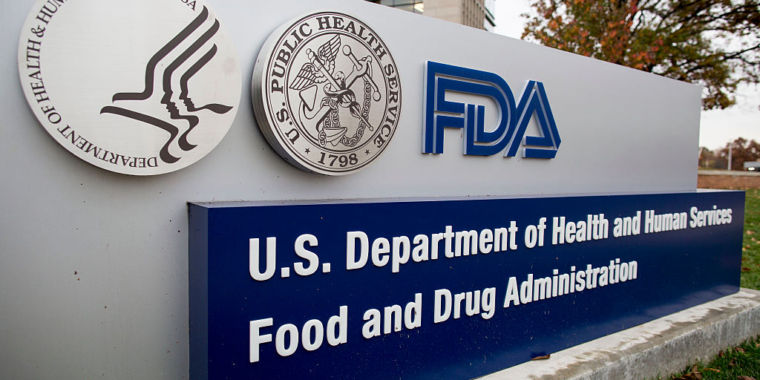
With the eruption of coronavirus variants around the world, the U.S. Food and Drug Administration is figuring out how to quickly review the vaccine adjustments that best protect against mutants – and the regulatory agency is drawing on its experience with annual flu vaccines. to do this.
In a statement late on Thursday, the regulatory agency said it was actively discussing what kind of “simplified” clinical data authorized COVID-19 vaccine manufacturers could present. The agency expects to have a draft of its guidelines in the coming weeks.
The announcement suggests that authorized vaccine manufacturers will not be required to send reams of data from large months-long clinical trials, as they did for their initial authorizations. Still, data on any altered vaccine – albeit reduced – would still have to be sufficient to convince FDA scientists that a next generation injection is safe and effective against variants. Changes to the vaccine could include changes to the initial vaccine design or additions of new vaccine components, the FDA said.
So far, the FDA has issued emergency use authorizations for two COVID-19 vaccines, one mRNA-based vaccine made by Moderna and another by partners Pfizer and BioNTech. (The FDA is now reviewing a US order for a third candidate, made by Johnson & Johnson, which is a non-replicable adenovirus-based vaccine.) Both mRNA vaccines have shown about 95 percent effectiveness in international Phase testing III. However, these tests were conducted before the emergence of worrying variants, some of which appear to be able to escape immune responses. Early clinical data does suggest that the vaccine’s effectiveness will be reduced by the currently emerging variants – although not entirely eliminated.
The FDA emphasized this last point, writing: “To be clear, as we continue to develop an understanding and address any impact of variants on FDA-regulated products, at this time, available information suggests that authorized vaccines remain effective in protecting the American public. against COVID-19 strains currently in circulation. ”
“We must prepare”
But it is also clear that the pandemic coronavirus, SARS-CoV-2, continues to evolve, becoming more transmissible and able to escape immune responses. It is likely that we will continue to see the appearance of worrying variants. “We must prepare for all eventualities,” said FDA acting commissioner Janet Woodcock, in a call with reporters.
To prepare and develop its new guidance, the agency is drawing on its experience with annual flu vaccines. “Vaccines and flu diagnoses are often modified each year to deal with predicted predominant strains that circulate globally. The agency created and used regulatory processes that facilitate these updates, ”wrote the agency. “We will use our experience with the flu to help inform a way forward if variants of SARS-CoV-2 arise against which currently authorized vaccines are not effective enough.”
Moderna, Pfizer and BioNTech said they are trying to adjust their current vaccines for better protection against emerging variants. Their mRNA-based vaccine designs make this process relatively easy. The vaccine works by delivering to human cells the genetic design of a key SARS-CoV-2 protein – the spike protein. From there, the cells translate the code into protein, which then trains the immune system to detect and neutralize the virus.
The variants seen so far have critical mutations in their peak proteins, so updating vaccines is primarily a matter of making small changes to the design delivered to the cells. BioNTech’s CEO previously said the company could make these adjustments in just six weeks.
Similarly, GlaxoSmithKline announced this week that it has partnered with German biotech company CureVac to help bring its mRNA-based vaccine to market – and start working on the next generations of the vaccine to protect against variants. GSK and CureVac said they are working on the development of a “multivalent” mRNA-based vaccine that could potentially protect against multiple variants at the same time.
